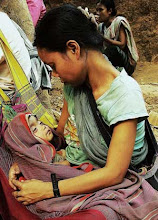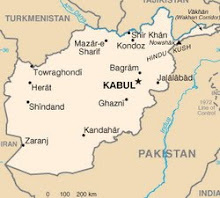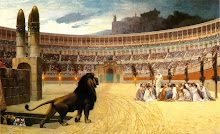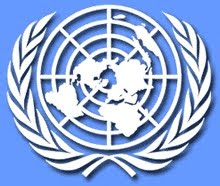 WASHINGTON-A bipartisan United States commission has called for designation of the same 11 countries that it recommended last year as the world's worst violators of religious liberty as it awaits a long overdue response from the State Department. The U.S. Commission on International Religious Freedom (USCIRF) released its annual report May 2, again urging Secretary of State Condoleezza Rice to keep Burma, China, Eritrea, Iran, North Korea, Saudi Arabia, Sudan and Uzbekistan as "countries of particular concern" (CPCs).The independent panel also repeated its recommendation that Rice add Pakistan, Turkmenistan and Vietnam to the CPC list. CPC designation is reserved for governments that have "engaged in or tolerated systemic and egregious violations of religious freedom."Rice, however, has not designated any CPCs in 18 months. The State Department released its 2007 report in September but did not publish a CPC list. USCIRF makes CPC recommendations, but only the secretary of state decides which countries receive such a designation.The State Department's failure to name CPCs based on last year's report "may send the unfortunate signal that the U.S. government is not sufficiently committed" to the process established by the International Religious Freedom Act (IRFA), USCIRF Chairman Michael Cromartie said in a May 1 letter to Rice. IRFA is the 1998 law that established USCIRF and the system of researching and reporting on global religious liberty.USCIRF also released a "watch list" consisting of Afghanistan, Bangladesh, Belarus, Cuba, Egypt, Indonesia and Nigeria. The same seven countries were on the 2007 "watch list," which is made up of governments the commission believes require close monitoring regarding their policies on religious freedom.The commission made no recommendation or designation on Iraq, which was on last year's "watch list." USCIRF "remains seriously concerned about religious freedom" in Iraq but will not make recommendations on that country until after its trip to the region later in May, Cromartie said during a May 2 Washington news conference at which the commission's 2008 report was released.The commission repeated last year's disagreement with the State Department's decision in November 2006 to remove Vietnam from the CPC list, again calling it "premature." Vietnam had been a CPC in 2004 and 2005.A USCIRF contingent traveled to Vietnam in October and found religious liberty conditions "remained mixed," commissioner Leonard Leo said at the news conference. Conditions have improved since Vietnam received CPC designation in 2004, but such progress has "occurred alongside persistent abuses, discrimination and restrictions," such as the imprisonment of religious adherents and "credible reports of forced renunciations of faith," Leo said."Since Vietnam joined the World Trade Organization in January 2007, positive religious freedom trends have not kept pace with other elements of the U.S.-Vietnamese relationship, and there has been a marked deterioration of human rights conditions overall in Vietnam," Leo told reporters. "In other words, once Vietnam achieved the WTO concession that it wanted, the government began to regress."The commission also gave extensive attention in its latest report to Saudi Arabia, which USCIRF members and staff visited in May and June of last year.The group found "little has actually changed on the ground," commissioner Elizabeth Prodromou said at the news conference, despite the Saudi government's pledge to establish reforms. The commission reported the Islamic-dominated regime continues to repress religious expression in a country that contains two to three million foreign workers and to fund and export intolerant, extremist literature. Richard Land, president of the Southern Baptist Ethics & Religious Liberty Commission, said he believes commissioners are both encouraged and discouraged at the global condition of religious freedom."We're encouraged because I think there is greater awareness of the problem, but that's the good news," said commission vice chairman Land at the news conference. "The bad news is that one of the reasons there's more awareness of the problem is there's a bigger problem in some parts" of the globe.The IRFA requirement that the State Department issue an annual report on religious freedom has produced an encouraging development, Land said. Every U.S. embassy has a person researching and writing a report on religious liberty, and, as a consequence, "there has now developed over the past decade a cadre of what used to be junior foreign service officers … working their way up through the system," he said. "And it's my observation and my experience that it is changing the culture of the State Department and making our State Department more aware of this issue, more sensitive to this issue, and I think that that will be a very positive effect for the future in terms of human rights and freedom of conscience rights continuing to be an ongoing part of America's foreign policy and its relationship with other nations around the world under both Democratic and Republican administrations. "Leo, meanwhile, cited what he described as the "greatest threats to religious freedom:"-"A growing trend of extreme Islam;"-An increase in "authoritarian capitalism" in Southeast Asia;-A "decline in religious worship" in the West that may "affect the way people think about religious freedom."Four of this year's CPC-recommended countries-Burma,China,Iran and Sudan-have been designated as CPCs by the State Department since the initial list in 1999.IRFA requires the president to take specific actions against governments designated as CPCs. He is provided a range of options, from diplomacy to economic sanctions.The president also has the authority to waive any action. USCIRF's responsibility is to advise the White House and Congress.The president selects three members of the panel,while congressional leaders name the other six.The State Department's ambassador at large for international religious freedom serves as a non-voting member of the panel.
WASHINGTON-A bipartisan United States commission has called for designation of the same 11 countries that it recommended last year as the world's worst violators of religious liberty as it awaits a long overdue response from the State Department. The U.S. Commission on International Religious Freedom (USCIRF) released its annual report May 2, again urging Secretary of State Condoleezza Rice to keep Burma, China, Eritrea, Iran, North Korea, Saudi Arabia, Sudan and Uzbekistan as "countries of particular concern" (CPCs).The independent panel also repeated its recommendation that Rice add Pakistan, Turkmenistan and Vietnam to the CPC list. CPC designation is reserved for governments that have "engaged in or tolerated systemic and egregious violations of religious freedom."Rice, however, has not designated any CPCs in 18 months. The State Department released its 2007 report in September but did not publish a CPC list. USCIRF makes CPC recommendations, but only the secretary of state decides which countries receive such a designation.The State Department's failure to name CPCs based on last year's report "may send the unfortunate signal that the U.S. government is not sufficiently committed" to the process established by the International Religious Freedom Act (IRFA), USCIRF Chairman Michael Cromartie said in a May 1 letter to Rice. IRFA is the 1998 law that established USCIRF and the system of researching and reporting on global religious liberty.USCIRF also released a "watch list" consisting of Afghanistan, Bangladesh, Belarus, Cuba, Egypt, Indonesia and Nigeria. The same seven countries were on the 2007 "watch list," which is made up of governments the commission believes require close monitoring regarding their policies on religious freedom.The commission made no recommendation or designation on Iraq, which was on last year's "watch list." USCIRF "remains seriously concerned about religious freedom" in Iraq but will not make recommendations on that country until after its trip to the region later in May, Cromartie said during a May 2 Washington news conference at which the commission's 2008 report was released.The commission repeated last year's disagreement with the State Department's decision in November 2006 to remove Vietnam from the CPC list, again calling it "premature." Vietnam had been a CPC in 2004 and 2005.A USCIRF contingent traveled to Vietnam in October and found religious liberty conditions "remained mixed," commissioner Leonard Leo said at the news conference. Conditions have improved since Vietnam received CPC designation in 2004, but such progress has "occurred alongside persistent abuses, discrimination and restrictions," such as the imprisonment of religious adherents and "credible reports of forced renunciations of faith," Leo said."Since Vietnam joined the World Trade Organization in January 2007, positive religious freedom trends have not kept pace with other elements of the U.S.-Vietnamese relationship, and there has been a marked deterioration of human rights conditions overall in Vietnam," Leo told reporters. "In other words, once Vietnam achieved the WTO concession that it wanted, the government began to regress."The commission also gave extensive attention in its latest report to Saudi Arabia, which USCIRF members and staff visited in May and June of last year.The group found "little has actually changed on the ground," commissioner Elizabeth Prodromou said at the news conference, despite the Saudi government's pledge to establish reforms. The commission reported the Islamic-dominated regime continues to repress religious expression in a country that contains two to three million foreign workers and to fund and export intolerant, extremist literature. Richard Land, president of the Southern Baptist Ethics & Religious Liberty Commission, said he believes commissioners are both encouraged and discouraged at the global condition of religious freedom."We're encouraged because I think there is greater awareness of the problem, but that's the good news," said commission vice chairman Land at the news conference. "The bad news is that one of the reasons there's more awareness of the problem is there's a bigger problem in some parts" of the globe.The IRFA requirement that the State Department issue an annual report on religious freedom has produced an encouraging development, Land said. Every U.S. embassy has a person researching and writing a report on religious liberty, and, as a consequence, "there has now developed over the past decade a cadre of what used to be junior foreign service officers … working their way up through the system," he said. "And it's my observation and my experience that it is changing the culture of the State Department and making our State Department more aware of this issue, more sensitive to this issue, and I think that that will be a very positive effect for the future in terms of human rights and freedom of conscience rights continuing to be an ongoing part of America's foreign policy and its relationship with other nations around the world under both Democratic and Republican administrations. "Leo, meanwhile, cited what he described as the "greatest threats to religious freedom:"-"A growing trend of extreme Islam;"-An increase in "authoritarian capitalism" in Southeast Asia;-A "decline in religious worship" in the West that may "affect the way people think about religious freedom."Four of this year's CPC-recommended countries-Burma,China,Iran and Sudan-have been designated as CPCs by the State Department since the initial list in 1999.IRFA requires the president to take specific actions against governments designated as CPCs. He is provided a range of options, from diplomacy to economic sanctions.The president also has the authority to waive any action. USCIRF's responsibility is to advise the White House and Congress.The president selects three members of the panel,while congressional leaders name the other six.The State Department's ambassador at large for international religious freedom serves as a non-voting member of the panel.USCIRF's new report may be accessed online at:
By Tom Strode-Washington bureau chief of Baptist Press.
As in the days of Noah...


























.bmp)
No comments:
Post a Comment